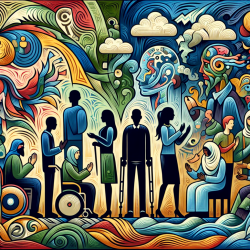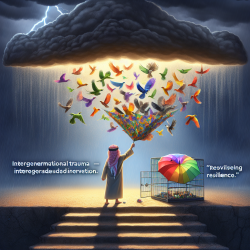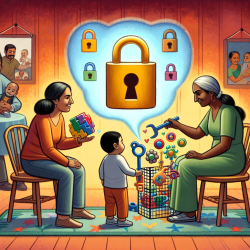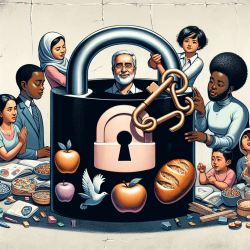Understanding Peer Victimization in College Students with Disabilities
Peer victimization is a pressing issue that extends beyond the school years and continues to affect college students, particularly those with disabilities. A recent study titled "Retrospective and Current Peer Victimization in College Students with Disabilities: Examining the Intersectionality of Sexual Orientation and Gender" sheds light on this phenomenon. This blog post aims to provide practitioners with insights from this study to improve their practice and encourage further research.
Key Findings from the Study
The study involved a sample of 58 college students with disabilities, 31% of whom identified as sexual minorities. It revealed that a staggering 98% of participants reported experiencing peer victimization during childhood, and about half reported victimization in the past two months. The research highlights several critical points:
- Intersectionality: Students who are both sexual minorities and have disabilities reported higher levels of retrospective victimization compared to their heterosexual peers.
- Psychological Distress: There is a significant correlation between both current and past victimization and psychological distress, emphasizing the long-term impact of bullying.
- Gender Differences: Female students with disabilities reported more current victimization than their male counterparts, suggesting a need for gender-sensitive interventions.
Implications for Practitioners
Practitioners working with college students with disabilities should be acutely aware of the high prevalence of peer victimization and its psychological correlates. Here are some actionable steps they can take:
- Advocacy and Education: Advocate against discrimination and educate themselves about the social issues affecting students with disabilities.
- Person-Centered Collaboration: Collaborate with other professionals to provide holistic support that addresses the unique needs of each student.
- Coping Strategies: Help students develop coping strategies to deal with current and past victimization effectively.
Encouraging Further Research
The study's findings highlight the need for further research in several areas:
- Larger Sample Sizes: Future studies should aim for larger sample sizes to enhance the generalizability of the results.
- Longitudinal Studies: Longitudinal research could provide more insight into how victimization experiences evolve over time.
- Inclusion of Diverse Populations: More research is needed on the experiences of transgender and non-binary students with disabilities.
By understanding the prevalence and impact of peer victimization, practitioners can better support students with disabilities in achieving positive educational and psychological outcomes.
To read the original research paper, please follow this link: Retrospective and Current Peer Victimization in College Students with Disabilities: Examining the Intersectionality of Sexual Orientation and Gender.










